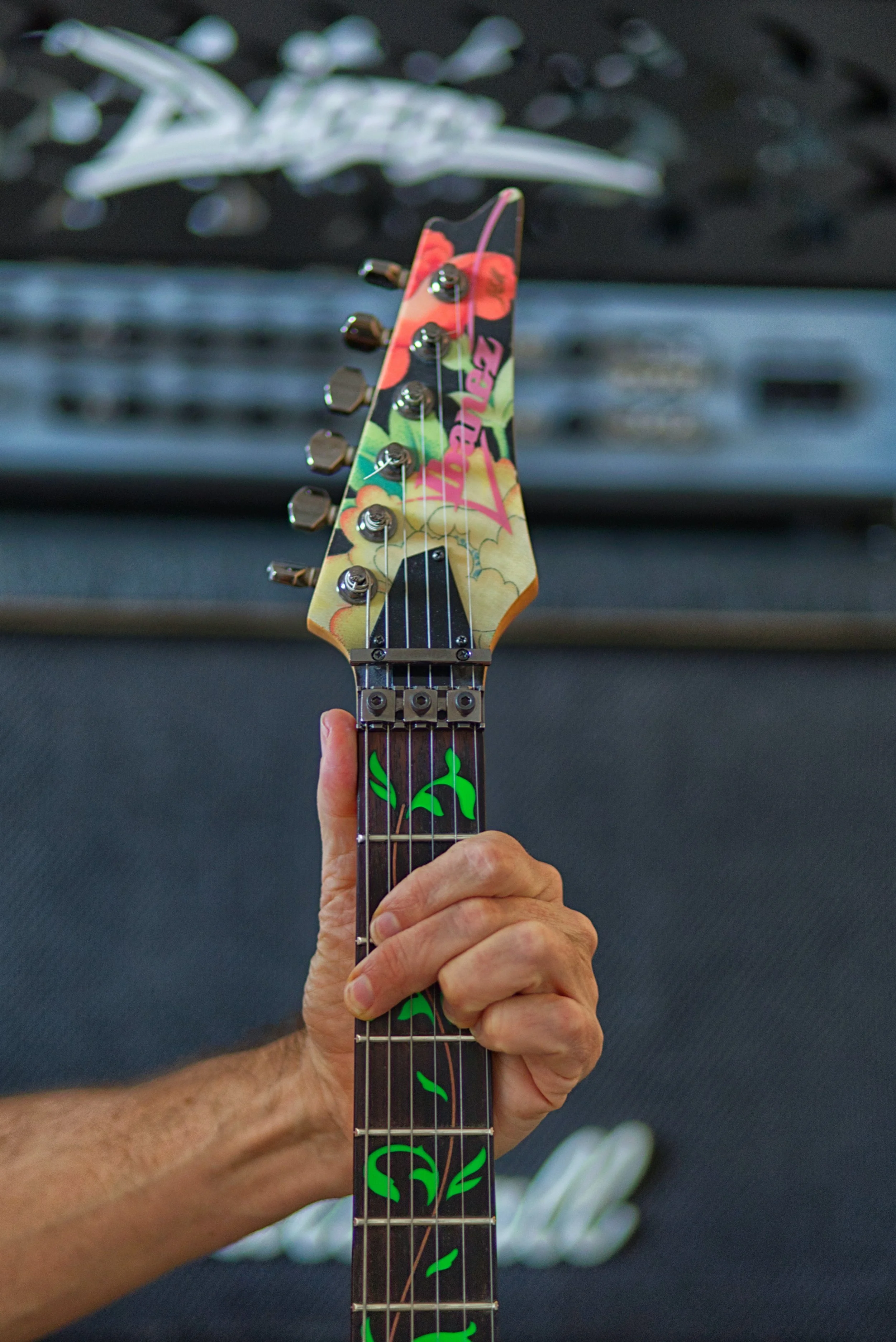You may know Steve Vai as one of the most accomplished hard rock guitarists of the last 40 years. He's worked with some of the biggest acts on the planet, such as David Lee Roth, Frank Zappa, Meatloaf, and Mary J. Blige, to name just a few.
You may not know that there's more to this man than fancy guitar licks. Behind that iconic signature, Ibanez guitar is a student of eastern philosophy and Zen practice.
Would you expect any less from the man that battled Ralph Macchio?
Let's look at how Steve has used his study of Zen to combat depression and anxiety attacks, as he lays out in his weekly Facebook Live series, Under it All.
The Most Common Mental Health Disorders
Like so many people, Steve Vai, despite his tremendous talent and unmistakable charisma, grew up an anxious child. The primary emotion that dominated his life and dedicated his actions was fear, not of anything specific but a general, amorphous fear.
This general fear would culminate in a severe panic attack at 20 and lead to a deep depression.
He’s not alone in this experience. Anxiety and depression are the most common mental health afflictions on the planet, and they are on the rise.
His panic attack would also mark the beginning of a lifelong relationship with spirituality, new age mysticism, and eastern philosophy. These traditions, along with heavy meditation and a healthy diet, brought Steve out of his funk and allowed him to thrive.
Sewing The Seeds of The Life You Want to Live
Early on in the process of discovering self-help and new age doctrines, the keyboard player he used to play with gave him a book. Perhaps one of the most generous acts by a keyboard player in the history of keyboards. It was the Complete Illustrated Guide to Yoga by Swami Vishnudevananda.
Years later, Steve would credit this book for first introducing him to the notion that you can plant seeds of thought in your mind that would grow into reality. These affirmations about how he wanted the world to be would come to define his life and would manifest in his playing.
His spiritual journey would continue to blossom as he discovered Eckhart Tolle and Jiddu Krishnamurti. These two would introduce Steve to the notion that time itself is an illusion.
All any of us have is the present moment. So to be present, right here, right now, doing what you’re doing, is the highest order achievement.
This epiphany would explode his playing.
Time is an Illusion
The idea that the past and future don’t exist would, once accepted, blow his mind. All creativity and all expression were only possible in “your now.” Your attention must be focused on your now.
Anything else, outside of right now, including any judgment, worry, or concern, is merely a distraction. A distraction that holds you, as a prisoner, to a space that literally does not exist.
Think you have writer's block? Then, bring yourself back to the here and now and watch your creative juices flow.
These meditations would help him grow and quiet his anxious mind more than anything else.
Meditation as Medicine
You can’t listen to Steve Vai’s music or watch him dance around the fretboard without feeling a deeper connection to his spiritual side. While some guitar players are well-practiced, playing from a memory of perfection, Steve is an expression of his here and now.
Meditation can seem a foreign concept or “too spiritual” for Westerners to get on board with, despite its well-documented health benefits.
The good news is that playing an instrument can help you achieve this meditative state. You might not sound like Steve Vai. I don’t. But both you and I can reap the benefits of playing the guitar all the same.
James Griffin is a freelance writer based in San Diego, CA and Manchester, UK. He writes about everything guitar-related at Really Simple Guitar.


